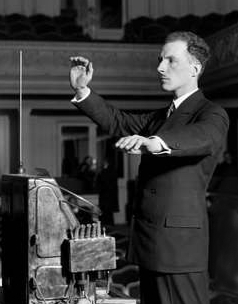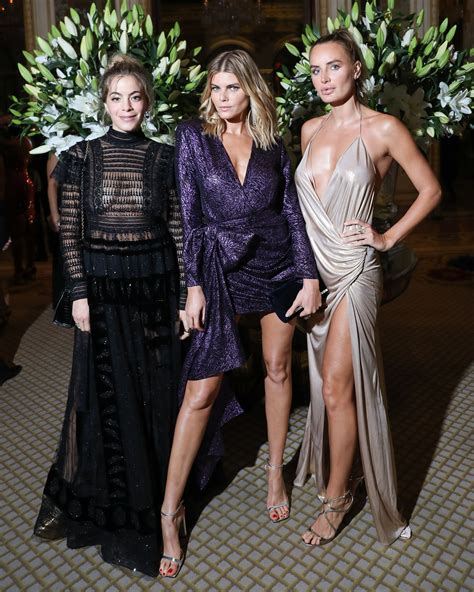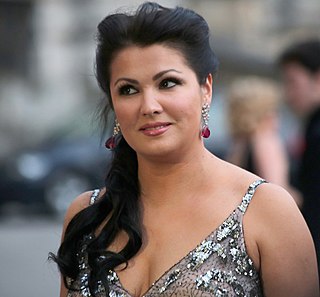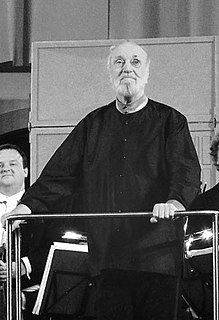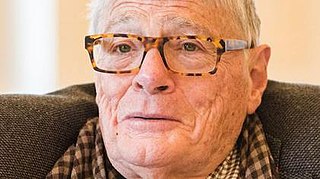A Quote by Daniel Barenboim
I am the conductor for life of the Staatskapelle in Berlin, which fills me with tremendous joy because I feel absolutely at one with them. When we play, I have a feeling that together we manage to create one collective lung for the whole orchestra so that everybody in the stage breathes the music in the same way.
Related Quotes
I always maintain that playing in an orchestra intelligently is the best school for democracy. If you play a solo, the conductor and everybody in the orchestra follows you. Then, a few bars later, the main voice goes to another instrument, another group, and then you have to go back into the collective [sound]. The art of playing in an orchestra is being able to express yourself to the maximum but always in relation to something else that is going on.
You feel the communion of the collective consciousness in that moment when you're on stage doing something and the audience is absolutely with you. And the audience becomes a collective entity as well. They come in from separate places and socio-economic backgrounds, and places across the world and days that they've had, and then they come together and they become one collective thing, and experience something in a collective way.
Before Liszt, a conductor was someone who just facilitated the performance, who would keep people together or beat the time, indicate the entries. After Liszt, that was no longer the case; a conductor was someone who shaped the music in an intense musical way, who played the orchestra as an instrument.
They call it collective energy. It's that same feeling that you get when you meditate amongst a ton of people. What actually makes the festival feel so special is that while you're watching a band or an artist, you're standing there, kind of feeling the same feeling with so many people in such a small space and that gives you collective energy. It's that kind of strange feeling in which you almost feel people breathing.
There are two types of conductors. One is the good conductor who can do passionate music but also listen to the singers and do the orchestra. And then there are great conductors, who have their own opinion on the music, who are ruling everything - and not listening much to the singers, but the orchestra play amazingly.
For the past eighty years I have started each day in the same manner. It is not a mechanical routine, but something essential to my daily life. I go to the piano, and play two preludes and fugues of Bach. I cannot think of doing otherwise. It is a sort of benediction on the house. But that is not its only meaning for me. It is a rediscovery of the world of which I have the joy of being a part. It fills me with awareness of the wonder of life, with a feeling of the incredible marvel of being a human being.
What appeals to me about an American music directorship is the involvement of the conductor with the orchestra and the community. I think that's a fantastic thing. In Europe, being principal conductor means merely that you're the person who does most of the concerts. For me, that simply isn't enough.





